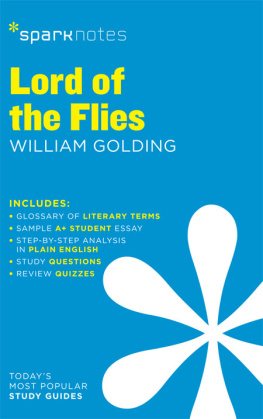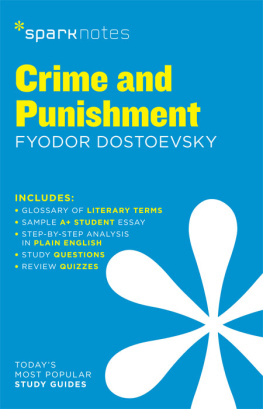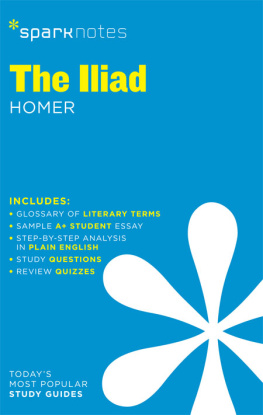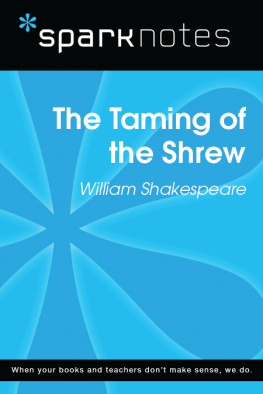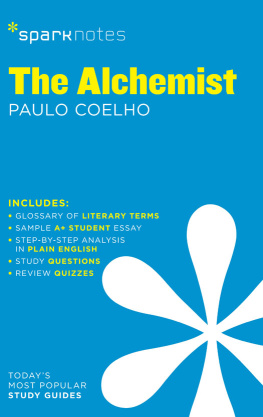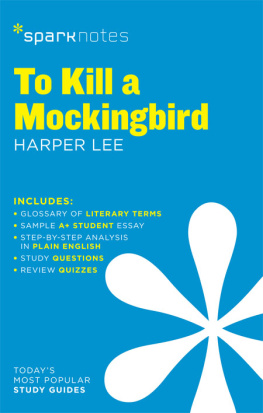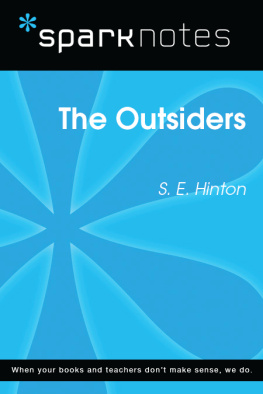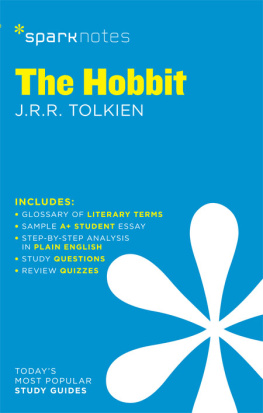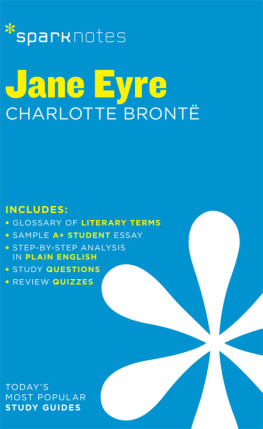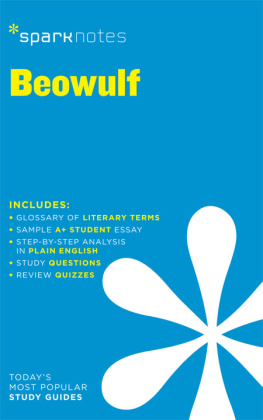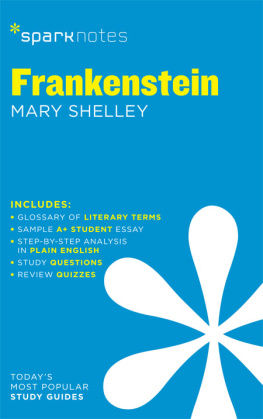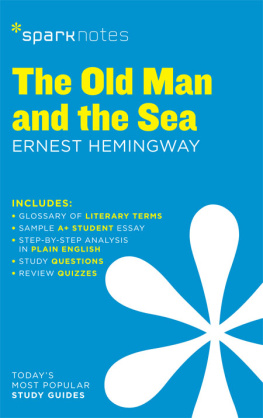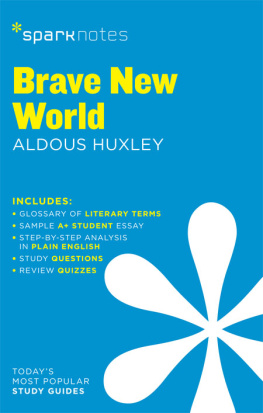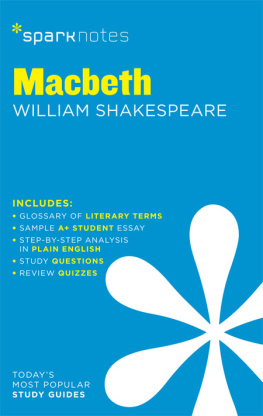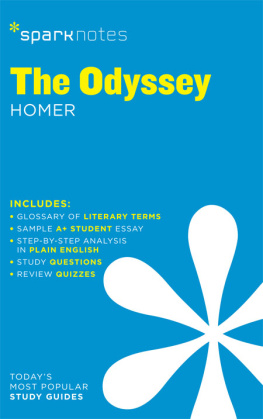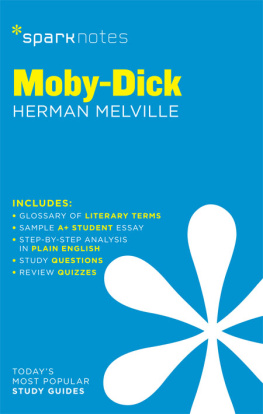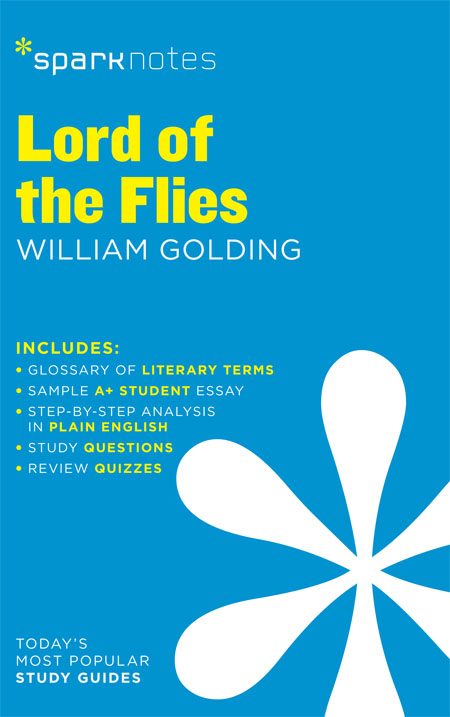Lord of the Flies
William Golding
2003, 2007 by Spark Publishing
This Spark Publishing edition 2014 by SparkNotes LLC, an Affiliate of Barnes & Noble
All rights reserved. No part of this publication may be reproduced, stored in a retrieval system, or transmitted in any form or by any means (including electronic, mechanical, photocopying, recording, or otherwise) without prior written permission from the publisher.
Sparknotes is a registered trademark of SparkNotes LLC
Spark Publishing
A Division of Barnes & Noble
120 Fifth Avenue
New York, NY 10011
www.sparknotes.com /
ISBN-13: 978-1-4114-7174-0
Please submit changes or report errors to www.sparknotes.com/errors.
10 9 8 7 6 5 4 3 2 1
Context
W illiam golding was born on September 19, 1911 , in Cornwall, England. Although he tried to write a novel as early as age twelve, his parents urged him to study the natural sciences. Golding followed his parents wishes until his second year at Oxford, when he changed his focus to English literature. After graduating from Oxford, he worked briefly as a theater actor and director, wrote poetry, and then became a schoolteacher. In 1940 , a year after England entered World War II, Golding joined the Royal Navy, where he served in command of a rocket-launcher and participated in the invasion of Normandy.
Goldings experience in World War II had a profound effect on his view of humanity and the evils of which it was capable. After the war, Golding resumed teaching and started to write novels. His first and greatest success came with Lord of the Flies (1954) , which ultimately became a bestseller in both Britain and the United States after more than twenty publishers rejected it. The novels sales enabled Golding to retire from teaching and devote himself fully to writing. Golding wrote several more novels, notably Pincher Martin ( 1956 ), and a play, The Brass Butterfly ( 1958 ). Although he never matched the popular and critical success he enjoyed with Lord of the Flies, he remained a respected and distinguished author for the rest of his life and was awarded the Nobel Prize for Literature in 1983 . Golding died in 1993 , one of the most acclaimed writers of the second half of the twentieth century.
Lord of the Flies tells the story of a group of English schoolboys marooned on a tropical island after their plane is shot down during a war. Though the novel is fictional, its exploration of the idea of human evil is at least partly based on Goldings experience with the real-life violence and brutality of World War II. Free from the rules and structures of civilization and society, the boys on the island in Lord of the Flies descend into savagery. As the boys splinter into factions, some behave peacefully and work together to maintain order and achieve common goals, while others rebel and seek only anarchy and violence. In his portrayal of the small world of the island, Golding paints a broader portrait of the fundamental human struggle between the civilizing instinctthe impulse to obey rules, behave morally, and act lawfullyand the savage instinctthe impulse to seek brute power over others, act selfishly, scorn moral rules, and indulge in violence.
Golding employs a relatively straightforward writing style in Lord of the Flies, one that avoids highly poetic language, lengthy description, and philosophical interludes. Much of the novel is allegorical, meaning that the characters and objects in the novel are infused with symbolic significance that conveys the novels central themes and ideas. In portraying the various ways in which the boys on the island adapt to their new surroundings and react to their new freedom, Golding explores the broad spectrum of ways in which humans respond to stress, change, and tension.
Readers and critics have interpreted Lord of the Flies in widely varying ways over the years since its publication. During the 1950 s and 1960 s, many readings of the novel claimed that Lord of the Flies dramatizes the history of civilization. Some believed that the novel explores fundamental religious issues, such as original sin and the nature of good and evil. Others approached Lord of the Flies through the theories of the psychoanalyst Sigmund Freud, who taught that the human mind was the site of a constant battle among different impulsesthe id (instinctual needs and desires), the ego (the conscious, rational mind), and the superego (the sense of conscience and morality). Still others maintained that Golding wrote the novel as a criticism of the political and social institutions of the West. Ultimately, there is some validity to each of these different readings and interpretations of Lord of the Flies. Although Goldings story is confined to the microcosm of a group of boys, it resounds with implications far beyond the bounds of the small island and explores problems and questions universal to the human experience.
Plot Overview
I n the midst of a raging war, a plane evacuating a group of schoolboys from Britain is shot down over a deserted tropical island. Two of the boys, Ralph and Piggy, discover a conch shell on the beach, and Piggy realizes it could be used as a horn to summon the other boys. Once assembled, the boys set about electing a leader and devising a way to be rescued. They choose Ralph as their leader, and Ralph appoints another boy, Jack, to be in charge of the boys who will hunt food for the entire group.
Ralph, Jack, and another boy, Simon, set off on an expedition to explore the island. When they return, Ralph declares that they must light a signal fire to attract the attention of passing ships. The boys succeed in igniting some dead wood by focusing sunlight through the lenses of Piggys eyeglasses. However, the boys pay more attention to playing than to monitoring the fire, and the flames quickly engulf the forest. A large swath of dead wood burns out of control, and one of the youngest boys in the group disappears, presumably having burned to death.
At first, the boys enjoy their life without grown-ups and spend much of their time splashing in the water and playing games. Ralph, however, complains that they should be maintaining the signal fire and building huts for shelter. The hunters fail in their attempt to catch a wild pig, but their leader, Jack, becomes increasingly preoccupied with the act of hunting.
When a ship passes by on the horizon one day, Ralph and Piggy notice, to their horror, that the signal firewhich had been the hunters responsibility to maintainhas burned out. Furious, Ralph accosts Jack, but the hunter has just returned with his first kill, and all the hunters seem gripped with a strange frenzy, reenacting the chase in a kind of wild dance. Piggy criticizes Jack, who hits Piggy across the face. Ralph blows the conch shell and reprimands the boys in a speech intended to restore order. At the meeting, it quickly becomes clear that some of the boys have started to become afraid. The littlest boys, known as littluns, have been troubled by nightmares from the beginning, and more and more boys now believe that there is some sort of beast or monster lurking on the island. The older boys try to convince the others at the meeting to think rationally, asking where such a monster could possibly hide during the daytime. One of the littluns suggests that it hides in the seaa proposition that terrifies the entire group.
Not long after the meeting, some military planes engage in a battle high above the island. The boys, asleep below, do not notice the flashing lights and explosions in the clouds. A parachutist drifts to earth on the signal-fire mountain, dead. Sam and Eric, the twins responsible for watching the fire at night, are asleep and do not see the parachutist land. When the twins wake up, they see the enormous silhouette of his parachute and hear the strange flapping noises it makes. Thinking the island beast is at hand, they rush back to the camp in terror and report that the beast has attacked them.

